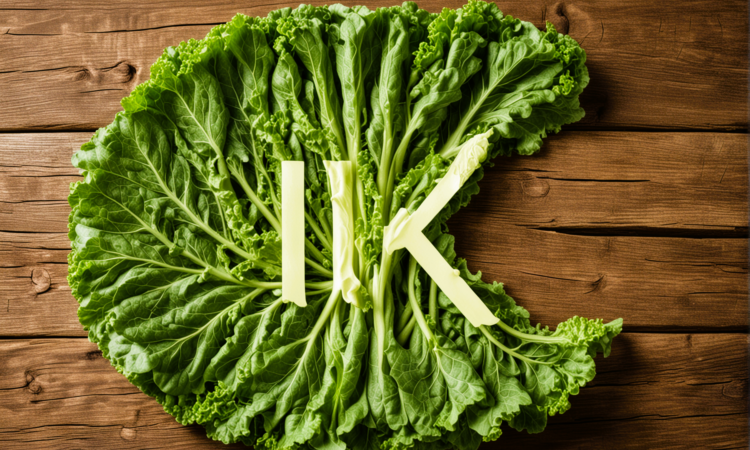
30 Benefits of Vitamin K
- Bone Health: Vitamin K plays a key role in the formation of proteins necessary for bone strength and density.
- Blood Clotting: Vitamin K is essential for blood clotting, helping prevent excessive bleeding.
- Heart Health: Vitamin K may help regulate blood vessel health and prevent calcification of arteries.
- Wound Healing: Vitamin K aids in wound healing by supporting blood clot formation.
- Supports Growth and Development: Vitamin K is essential for proper growth and development, particularly in children.
- Prevents Osteoporosis: Adequate vitamin K intake may help prevent osteoporosis by supporting bone health.
- Improves Insulin Sensitivity: Vitamin K may improve insulin sensitivity and support glucose regulation.
- Lowers Cancer Risk: Some studies suggest that vitamin K may help lower the risk of certain cancers.
- Protects Against Fractures: Adequate vitamin K intake may protect against fractures, especially in older adults.
- Enhances Brain Function: Vitamin K supports cognitive function and may help maintain brain health.
- Promotes Healthy Skin: Vitamin K supports wound healing and may improve the appearance of scars and stretch marks.
- Supports Oral Health: Vitamin K plays a role in supporting healthy teeth and gums.
- Improves Vision: Vitamin K may support eye health and prevent certain eye disorders.
- Anti-Inflammatory Properties: Vitamin K has anti-inflammatory properties that may help reduce inflammation in the body.
- Supports Nervous System Health: Vitamin K may support nervous system health and function.
- Improves Hormonal Balance: Vitamin K may help regulate hormonal balance in the body.
- Reduces Menstrual Pain: Vitamin K may help alleviate menstrual cramps and discomfort.
- Prevents Bruising: Adequate vitamin K intake may prevent easy bruising.
- Helps Maintain Healthy Weight: Vitamin K may support healthy metabolism and weight management.
- Supports Liver Health: Vitamin K is involved in liver function and detoxification processes.
- Improves Muscle Strength: Vitamin K may help maintain muscle strength and function.
- Prevents Age-Related Decline: Vitamin K may help prevent age-related decline in bone density and cognitive function.
- Enhances Fertility: Vitamin K may support reproductive health and fertility.
- Improves Mood: Vitamin K may have mood-enhancing effects and support emotional well-being.
- Promotes Healthy Blood Vessels: Vitamin K supports the health of blood vessels and circulation.
- Boosts Immune System: Vitamin K may help strengthen the immune system.
- Supports Healthy Aging: Vitamin K supports overall health and may contribute to healthy aging.
- Helps with Diabetes Management: Vitamin K may improve insulin sensitivity and support diabetes management.
- Protects Against Osteoarthritis: Adequate vitamin K intake may protect against osteoarthritis.
- Helps with Sleep Quality: Vitamin K may support better sleep quality and relaxation.

Fruits and Vegetables Rich in Vitamin K:
- Vegetables: Dark, leafy greens such as kale, spinach, Swiss chard, collard greens, and mustard greens are rich in vitamin K. Other vegetables include broccoli, Brussels sprouts, asparagus, and green beans.
- Fruits: Fruits generally contain lower amounts of vitamin K compared to vegetables. However, some fruits like kiwifruit, prunes, and blueberries have modest amounts.
How to Take Vitamin K:
- Diet: The best way to get vitamin K is through a balanced diet that includes a variety of vegetables and some fruits.
- Supplements: If you have a deficiency or need extra vitamin K, you can take supplements. Always consult with a healthcare professional before taking supplements.
- Consistency: Maintain a consistent intake of vitamin K in your diet to support overall health.
- Cooking Methods: Steaming or lightly cooking vegetables can help preserve vitamin K content.




